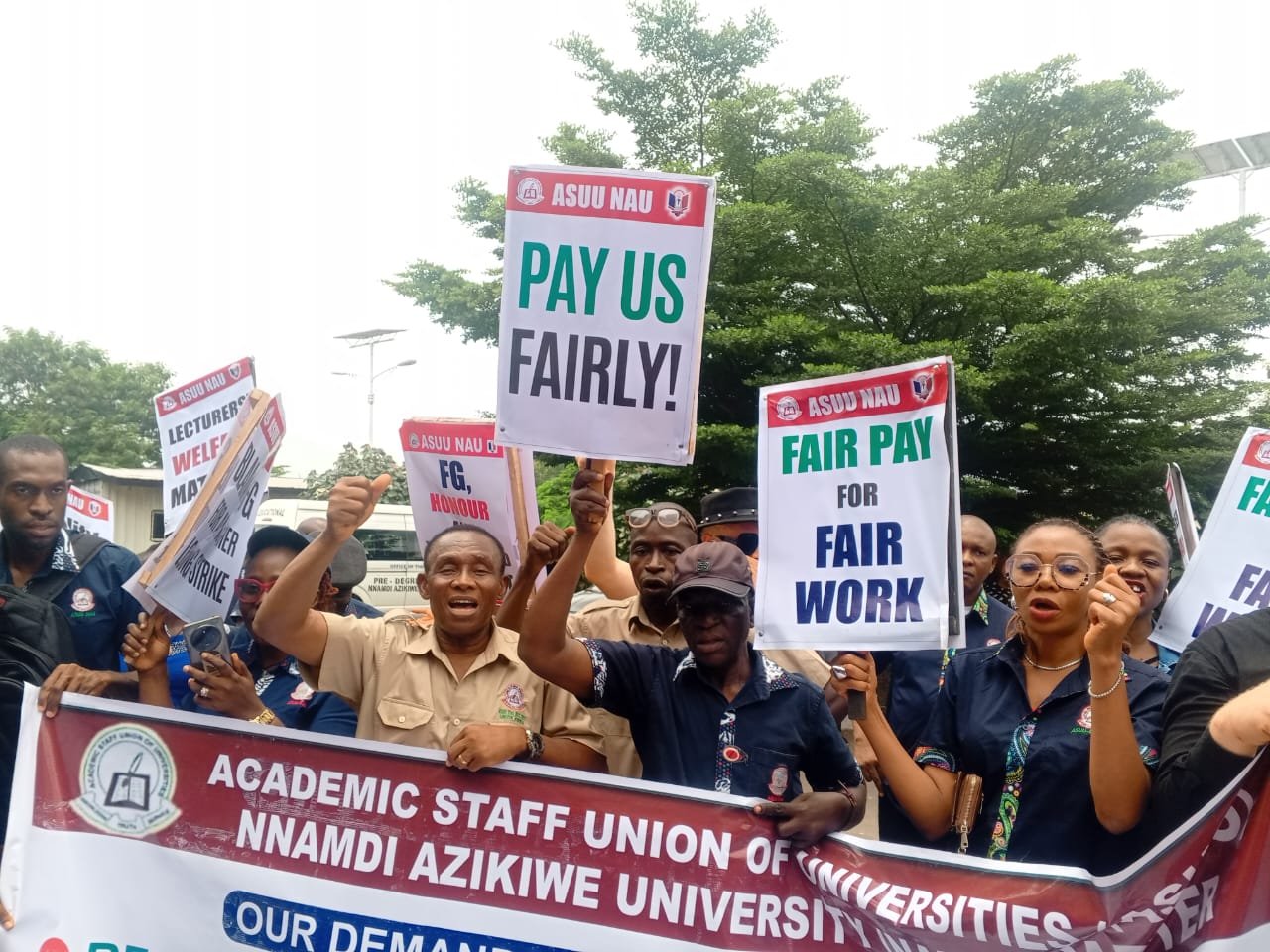The Academic Staff Union of Universities (ASUU) staged a nationwide protest on Tuesday, August 26, 2025, with lecturers across states including Lagos, Kano, Uyo, Jos, Enugu, and Maiduguri taking to the streets. The demonstrations highlighted years of frustration over poor funding, unpaid salaries, and unfulfilled government agreements.
Mounting Frustration
The protest comes barely a month after ASUU embarked on a nationwide strike in July over delayed June salaries. Union leaders say the federal government has consistently failed to meet agreements dating back to 2009.
At the University of Lagos, ASUU representative Kayode Adebayo lamented:
“We have been silent for too long… we didn’t go on strike in the past three years, but no tangible improvements followed. We are tired. Since 2009, the dialogue with the federal government has not yielded any results.”
Similarly, at the Abubakar Tafawa Balewa University (ATBU), Bauchi, branch chair Joseph Molwus rejected the government’s new Tertiary Institution Staff Support Fund (TISSF) loan scheme, describing it as a “poison chalice.” According to him, lecturers need their withheld entitlements — not loans that push them into debt.
Key Demands
ASUU outlined its core grievances, which include:
- Implementation of the 2009 renegotiated agreement
- Payment of 3.5 months withheld salaries from the 2020 strike
- Arrears for promotions and wage awards (25–35 months)
- Release of revitalisation funds and academic allowances
- Remittance of outstanding third-party deductions
ASUU President Prof. Chris Piwuna declared that lecturers’ patience had run out:
“We have always made ourselves available to the government, but no part of the agreement has been enforced… Many lecturers earn just a little over ₦400,000, while politicians enjoy regular pay raises.”
Nationwide Discontent
From the Federal University of Technology Minna to the University of Ibadan, lecturers carried placards denouncing government neglect. Some described the FG’s approach as “deliberate abandonment” of academic welfare, accusing authorities of prioritising politics over education.
A lecturer, Haruna, put it bluntly:
“If you get just a meagre salary in Nigeria, just because I have decided to come and contribute, it simply shows the kind of leadership we have. Do they really respect Nigerian citizens? Do they really respect academia?”
What’s at Stake
The protests reflect a deeper crisis in Nigeria’s tertiary education system. Without urgent government action, ASUU warns that no fewer than 150 universities could be shut down, disrupting the academic calendar and delaying the education of millions of students.
For now, the standoff between ASUU and the federal government remains unresolved, with fears that another prolonged strike could further destabilise Nigeria’s fragile education sector.
If you enjoyed this article, explore more insightful stories on iNaijanow and join the conversation on our Instagram, Facebook, X, YouTube for fun, engaging, and up-to-date content.
- Paystack Becomes a Bank as It Acquires Ladder Microfinance Bank

- Reps Summon Finance, Budget Ministers Over Poor Budget Implementation

- AFRIMA, British High Commission Strengthen Creative Collaboration

Disclaimer: The opinions, views, and information expressed in this article are those of the author and do not necessarily reflect the official policy, position, or views of iNaijanow. The company assumes no liability for any errors, omissions, or damages arising from the use of this information.













